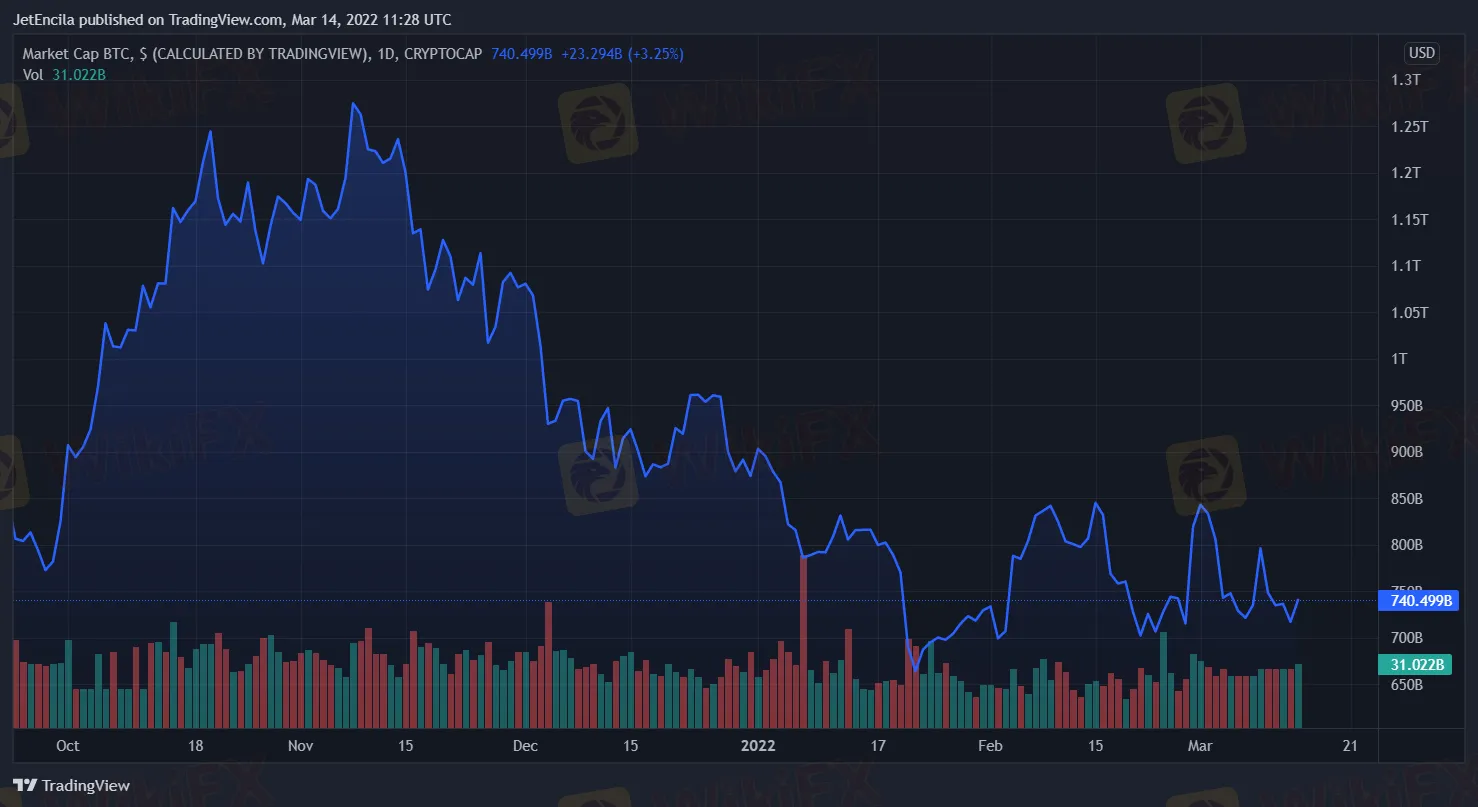简体中文
繁體中文
English
Pусский
日本語
ภาษาไทย
Tiếng Việt
Bahasa Indonesia
Español
हिन्दी
Filippiiniläinen
Français
Deutsch
Português
Türkçe
한국어
العربية
Japan Orders Crypto Exchanges Not To Process Transactions Involving Russian Assets
Abstract:There is growing fear among the G7 advanced economies that Russian firms are exploiting cryptocurrencies to circumvent financial restrictions imposed on the country for attacking Ukraine.
On Monday, Japanese authorities directed cryptocurrency exchanges to refrain from processing transactions involving digital assets that are liable to asset freeze restrictions on Russia and Belarus over the Ukraine war.
The move comes in response to a Friday Group of Seven (G7) statement in which Western nations announced they would enforce penalties on illegal Russian individuals who use crypto assets to transfer their wealth.
To punish Russia for its invasion of Ukraine, the United States, the European Union, and other allies increased their economic pressure on the country on Friday. Among the actions taken were measures to remove Russia from special trade and economic considerations.
The latest actions, according to US President Joe Biden, will collectively impair Russias financial structure that is already reeling from previously announced international sanctions, which have depreciated its currency and forced its stock exchange to shutter.
Using Crypto To Duck Sanctions
There is growing fear among the G7 advanced economies that Russian firms are exploiting cryptocurrencies to circumvent financial restrictions imposed on the country for attacking Ukraine.
The US Treasury Department published new recommendations mandating cryptocurrency exchanges based in the United States to abstain from transactions with sanctioned entities.
In the midst of the Ukraine-Russia conflict, cryptocurrency has become a contentious issue.
The Japanese government will bolster actions against cash being transferred via crypto assets in violation of penalties, the Financial Services Agency and the Ministry of Finance announced in a joint statement.

Hefty Fine And Prison Term
In spite of the G7 industrialized nations and the G20 powerhouses all urging for more regulation of “stablecoins,” Japan has been slow to catch up with the global trend.
Japans new initiative will punish people who make illicit payments to those targeted by sanctions with up to three years in prison or a 1 million yen fine. Additionally, non-fungible tokens are seen as a sort of payment.
According to an industry association, Japan had 31 cryptocurrency exchanges as of March 4.
By and large, cryptocurrency firms have complied with the fines. Notably, Kraken has not done so, and CEO Jesse Powell has stated that such a move would require a legal justification.
There are just a few that are still operating, including Trezor, and Binance has suspended the accounts of individuals on a sanctions list.
Meanwhile, Coinbase has stated that technology developed in the cryptocurrency business might be utilized to assure sanction compliance. Some 25,000 wallets affiliated with Russians have been frozen by one of the worlds major exchanges.
Disclaimer:
The views in this article only represent the author's personal views, and do not constitute investment advice on this platform. This platform does not guarantee the accuracy, completeness and timeliness of the information in the article, and will not be liable for any loss caused by the use of or reliance on the information in the article.
Read more

Unleash Your Trading Skills: Join the WikiFX KOL India Trading Competition!
Are you ready to take your trading expertise to the next level? WikiFX is excited to announce an extraordinary India Trading Competition designed to connect passionate forex traders, enhance user engagement, and reward trading excellence!

Moomoo Financial & M1 Finance Face FINRA Sanctions for Influencer Misconduct
FINRA has fined Moomoo Financial and M1 Finance for failing to ensure compliance with regulatory standards in their social media influencer programmes, highlighting the growing need for robust oversight in digital marketing within the financial services industry.

Philippine Banks Launch PHPX Stablecoin to Transform Payments
Philippine banks introduce PHPX stablecoin, backed by bank collateral, to streamline $9T stablecoin transactions, remittances, and cross-border payments.

Bank of America Launches FX Services in the Philippines
Bank of America begins foreign exchange (FX) services in the Philippines, eyeing a share of the $300 billion onshore currency market. Learn about their growth plans.
WikiFX Broker
Latest News
Justin Sun Invests $30M in Trump-Backed World Liberty Financial
Kraken Closes NFT Marketplace Amid New Product Focus
Robinhood Launches Ethereum Staking with 100% Rewards Match
Broker Review: Is FOREX.com a solid Broker?
Philippine Banks Launch PHPX Stablecoin to Transform Payments
Elon Musk Warns of Imminent US Bankruptcy | Bitcoin Retreats from $100K
WikiEXPO Global Expert Interview: Advanced Practices and Insights in Financial Regulation
Tether to Discontinue EURt Stablecoin Amid Regulatory Shifts in Europe
Adani’s Bribery Scandal! SEC Charges, Major Fallout & Adani’s Stand
Unleash Your Trading Skills: Join the WikiFX KOL India Trading Competition!
Currency Calculator


